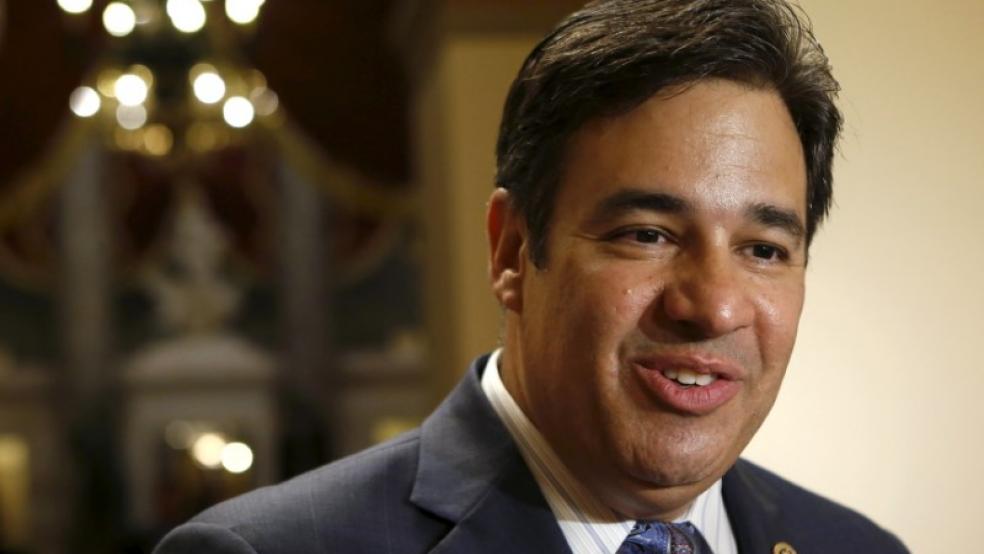The bills to fund the government and extend tax breaks unveiled by House Speaker Paul Ryan (R-WI) on Wednesday night suggests a careful strategy by congressional leaders to get both measures through Congress and put the nation’s finances in order before 2016.
The roughly $1.1 trillion omnibus appropriations bill was largely stripped of policy riders, including several “poison pills” that the White House signaled would have brought a veto of the must-pass spending bill.
Related: Why Is Congress Giving Away $500 Billion in Unfunded Tax Cuts?
In return, Republicans got a repeal of 40-year old ban on U.S. oil exports, a move by Ryan that could entice GOP members to vote for the massive funding bill already expected to receive wide Democratic support.
The horse-trading continued in a $650 billion package extending a series of tax breaks over 10 years, with $560 billion of the total in permanent extensions. It includes a two-year pause in both a medical device and "Cadillac tax" on high-cost healthcare plans, something sure to garner huge GOP support while Democrats will likely vote against the measure.
"In divided government, you don't get everything you want. Republicans didn't get all that we wanted, Democrats didn't get all that (they) wanted. This is a bipartisan compromise," Ryan said Thursday during a Capitol Hill press conference.
The lower chamber is expected to vote on the tax package on Thursday and the spending bill on Friday.
Related: Why Congress Wants Sweeter Tax Breaks for Special Interests
Here are the top wins the parties got in the omnibus:
Democrats.
- The sweeping bill eliminates stripping Planned Parenthood of federal funding, something House conservatives have clamored for. Last summer members of the far-right House Freedom Caucus said the government should be shut down before another dollar went to the healthcare organization.
- The proposed spending measure doesn’t restrict the influx of Syrian refugees into the U.S. The House overwhelmingly passed legislation in the days after the ISIS attacks in Paris to impose new measures on the administration resettlement effort that would have essentially “paused” the program.
- In exchange for lifting the ban on crude oil exports, Democrats received a five-year extension of tax breaks for solar and wind energy companies that would eventually be phased out over five years and seven years, respectively.
Republicans
- In what Ryan called a “big win,” the GOP secured an agreement to lift the 40-year-old ban on U.S. oil exports. On Thursday, House Minority Leader Nancy Pelosi (D-CA) expressed alarm that lifting the ban could cost American jobs, but didn’t voice any strenuous objections to the bill that provides tens of billions for domestic efforts.
- The GOP managed to keep a policy rider that prohibits the federal government from even researching gun violence. The 17-year-old ban had come under scrutiny in light of this year’s wave of mass shootings in the U.S., like the ISIS-inspired attack in San Bernardino, California.
- Republicans prevented a "bailout" for Puerto Rico. The government there has said it’s nearly bankrupt, but it looks like the GOP will wait for 2016 before taking any kind of action.
Bipartisan
- The spending measure includes a previously passed House bill that would tighten the U.S. visa waiver program, which allows citizens from 38 countries to travel to the U.S. without a visa for 90 days. Democrats and Republicans alike pushed for changes to the program in the wake of the ISIS attack in Paris that killed 130 people.
- The Omnibus funds a program providing healthcare benefits for 9/11 first responders and survivors affected by harmful air at the site through 2090, however it only reauthorizes the financial compensation of what is known as the Zadroga Act for five years. The bill had been the subject of an intense lobbying effort by former Daily Show host Jon Stewart, who stormed Capitol Hill and the nation’s airwaves to get the program renewed.
- The deal includes a plea to the Capitol police to allow sledding on Capitol Hill. Earlier this year the head of the force’s board announced sledding would be prohibited for “security reasons.”





